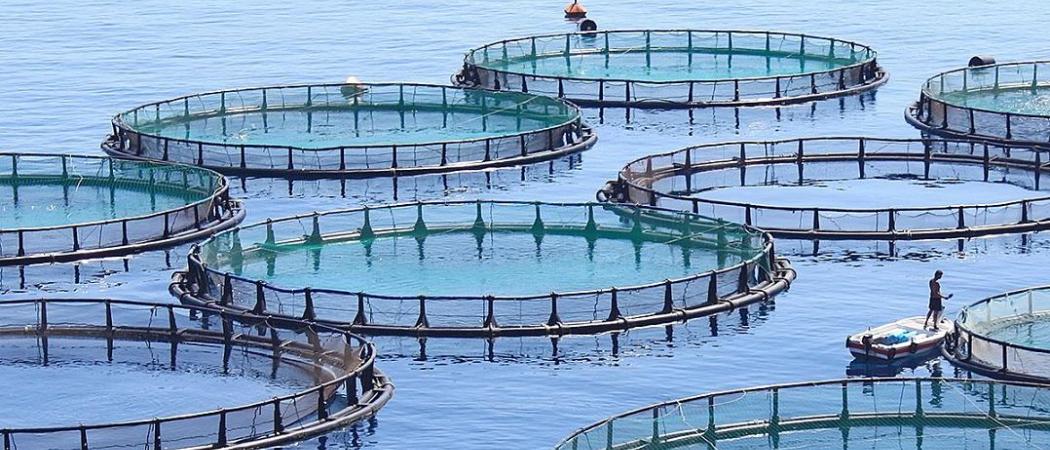Latest report from the Scientific Advice Mechanism team suggests a range of options to foster more offshore entrepreneurs

Tiny sea creatures lower on the food web and underwater plants are a huge untapped source of food and biomass for a growing population, and Europe must expand its hunt for them, the European Commission’s Scientific Advice Mechanism says in its latest opinion.
The six-member science panel, more commonly known as SAM, was asked by the Commission to investigate how more food and biomass can be obtained from the oceans in a sustainable way.
The report looks at the management and socio-economics in Europe of mariculture, which is a branch of seawater farming that involves cultivating fish, crustaceans, molluscs and aquatic plants under controlled conditions, and presents evidence and a buffet of policy options to support the industry’s growth. The analysis also draws on research produced by the Horizon 2020-funded Science Advice for Policy by European Academies, or SAPEA, consortium.
“The two main messages in our findings: there’s more in the oceans than fish. And we have to pay attention, in order to protect maritime resources for future generations,” said outgoing SAPEA chair, Gunter Stock.
Mariculture’s promise is that, according to figures collected by SAPEA, it could add an extra 300 to 400 million metric tonnes of biomass for food or feed each year, a three to fourfold increase on current levels of extraction, which would help compensate declining figures for wild catches.
Wild fishing has long since passed the point at which most fish stocks are sustainable, the report says. Farmed fish production, by comparison, is expanding 6.5 per cent a year, putting it on course to eclipse the output of wild fishing in the next few years.
More farming of herbivorous fish, molluscs, seaweed and bivalves helps alleviate food supply fears for an estimated 9 billion people by 2050, the SAM team says, and avoids putting more land under agriculture. Non-food products produced by mariculture include fishmeal, jewellery and cosmetics.
The ocean accounts for almost half of the planet's biological production, but a much smaller proportion of human food – about 2 per cent of overall calorie intake and 15 per cent of protein intake.
“This is no longer tenable given the nutritional needs of a growing population and over-stretched land-based resources,” the report says.
Boosting offshore entrepreneurs
Oceanic farming is not a perfect food supply, the group acknowledges, and needs to be regulated prudently and efficiently.
But to nudge along the growth of mariculture farming, “it is essential for entrepreneurs and investors that sufficient amounts of appropriate space be made available,” the report says. Fish farmers compete with tourism and homeowners for access to the coast.
Boosting investment in the sector requires harmonised rules for licences – which presently vary widely between jurisdictions, the report says.
Subsidies and grants compensate for some of the risk in aquaculture farms. The report suggests these payments could be re-orientated toward ‘green payments for innovation’ to reduce waste from production processes and to compensate producers for further investment in new farms and technologies. Alternatively, the group suggests levying lower taxes on the industry.
SAM advice
SAM was established in 2015 as an additional layer of science assistance for the Commission, superseding the role of chief scientific advisor held by Anne Glover that was abolished in 2014, following a very public dispute with anti-GMO lobbyists.
The SAM members are former CERN Director-General Rolf-Dieter Heuer; Janusz Bujnicki, professor at the International Institute of Molecular and Cell Biology in Warsaw; Pearl Dykstra, professor of sociology, Erasmus University Rotterdam; Elvira Fortunato, Professor, NOVA University, Lisbon; Rolf-Dieter Heuer, former director-general of CERN; Carina Keskitalo, professor of political science, Umeä University; and Paul Nurse, director of the Francis Crick Institute.
The group has produced four other scientific analyses, covering agricultural biotechnology, cybersecurity, glyphosates and CO2 emission testing in cars.





 A unique international forum for public research organisations and companies to connect their external engagement with strategic interests around their R&D system.
A unique international forum for public research organisations and companies to connect their external engagement with strategic interests around their R&D system.